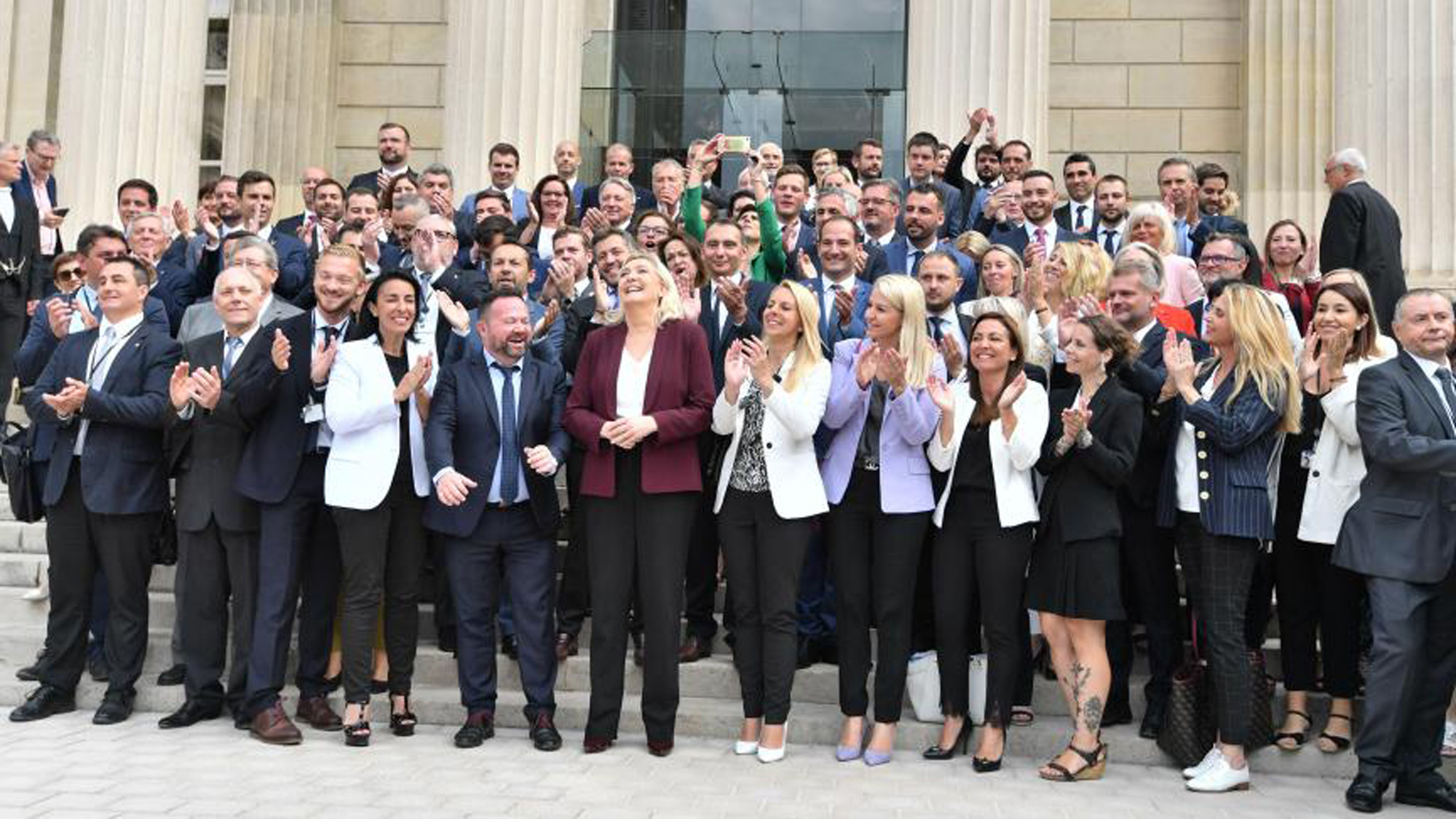An unexpected panorama

The elections of the French Parliament have culminated in the three-year electoral cycle and have left an unprecedented picture in the Fifth Republic. President Macron, newly proclaimed winner for the second time, has not reached a parliamentary majority in his favour. The far right has reached a historic number of Members and with the traditional right it forms a powerful reactive block on issues of security, migration, identity... NUPES, despite the failure of its courageous pari, is the first force of the opposition, breaking with an old trend: an alliance is created not around the moderate pole, as it has been for decades with the Socialist Party, but around a programme that proposes a break with neoliberal policies, serious ecological planning and a disobedience with European anti-social regulations.
This picture largely confirms the crisis in the French political-institutional system and the beginning of the restructuring. For a long time, the political space was shaped by the transformative left and by the currents of the traditional right. The neoliberal phase of capitalism, begun 40 years ago, has had profound consequences and new sociological and political blocs have emerged: The “bourgeois bloc” is, on the one hand, Europeanist, self-defined as “progressive” and aims to bring reforms neoliberales.Por to the other side, if it is a bloc of the far right, with identity as the main symbol and encompassing some sectors of the popular classes. However, both agree to follow the logic of the capitalist system. The main novelty is that, as a result of the success of the Intractable France strategy, the real transformative left has raised its head and formed the third socio-political bloc. The policies decided upon over the next five years will be the result of the tensions between these three blocs and the relations of force.
These trends are also observed in the Northern Basque Country, but the specificity of the territory cannot be denied: EH Bai continues its continuous progression, confessing that it is the first force on the left. What is more, it is being strengthened in the most vulnerable areas so far. He has demonstrated that in Euskal Herria it is a fundamental part of the true “ecological and social citizen unity”.
This unexpected panorama leaves many questions open. Exercise of governing first: Will the President seek appropriate alliances in each case or will he try to reach a general agreement? As in the past five years, Macron sharpens and probably takes advantage of the traditional right-wing internal contradictions. Another question is the stability of the PES. It can be thought that Macro will try to do with the most moderate sectors. France The very future of Insumiso is a question mark. After the end of Mélencor, will it be able to maintain good functioning and internal cohesion? In Ipar Euskal Herria, it is still difficult for the French Left Sage to accept centrality and take into account the peculiarities of this territory. Will the refoundation you are experiencing also bring news at this level?
The extreme right in France has gone from eight Members to 89 years. Thus, for the first time, the Union Nacional RN de Marine Le Pen can form a parliamentary group, which gives it many advantages: firstly, consistent financial support. Each vote on the first round will generate... [+]
Frantziako legebiltzarreko bozendako hautagaiek ostirala dute azken epea izena ofizialki emateko Paueko prefeturan. Ipar Euskal Herria eta Biarnoa batzen dituen laugarren hautesbarrutian, sei hautagaik jadanik jakinarazi dute diputatu izan nahi dutela. EH Bai alderdiaren... [+]


















